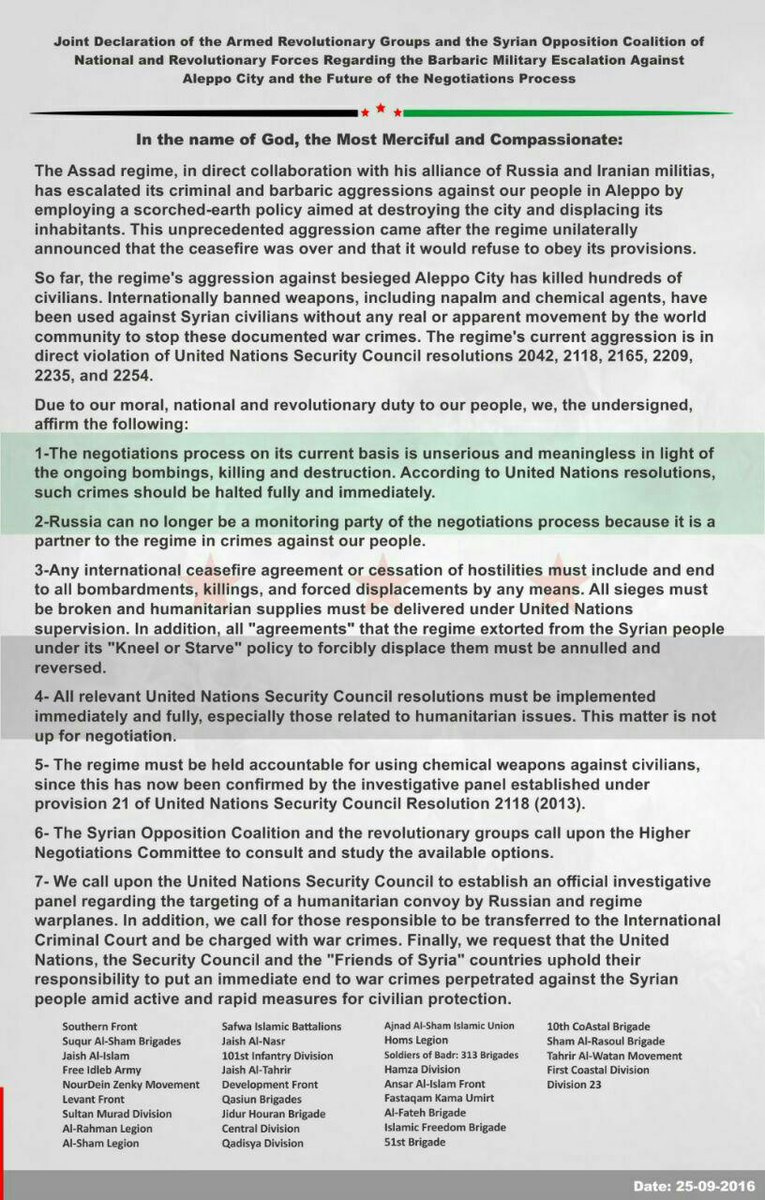' "Bombing a school in 2016 shouldn't be normal, shouldn't be OK," insists Marcell Shehwaro, a 32-year-old Syrian activist, who runs a network of informal schools out of basements in the devastated city. Classrooms, bakeries, hospitals and even rescue workers are targeted in her hometown during the most merciless airstrikes of a war now five years old.
"Stopping the bombing is what I need right now," she says in an interview in New York. Shehwaro was part of a delegation of Syrian civil society workers at the United Nations. They came to confront world leaders over the Russian and Syrian offensive in Syria after a short-lived ceasefire collapsed. She is from a Christian family, and President Bashar Assad's regime and Islamist militants have targeted her. Syria's Christian community shuns her, blaming the revolt she supported for ushering in militant Islamists that target Christians.
"I can't quit. I speak English. I have two degrees and I'm privileged. Quitting means that I lost," she says. "When I am tired and I want to quit, I say, 'OK, 100 girls went back to school [last month] so I will keep going,'" says Shehwaro. She runs Kesh Malek, which means "checkmate" in English, and the defeat of the king in chess.
Her group has opened seven schools in rebel-held Aleppo, serving up to 3,000 pupils in basement classrooms to shield students from the bombs. But the war has taken an immense personal toll.
"Maybe I didn't leave because I'm guilty that I survived," she says. "I'm without a family, without a country, without dreams, but I'm more determined, more realistic."
In July 2011, the Syrian government held a "national dialogue," a gathering of establishment and moderate opposition figures. The meeting was a gesture by Assad's government to address the nationwide demonstrations that had erupted four months earlier, in March. After the gathering, the protests continued and the government responded ever more harshly. Shehwaro paid a heavy price as a blogger who was openly critical of the government.
"I lost my job," she said. "I went to a weekly interrogation [by security officials] that lasted for hours."
She eventually joined the street protests in Aleppo, in the north of the country. By the summer of 2012, half of Aleppo was under rebel control.
"I lost my job," she said. "I went to a weekly interrogation [by security officials] that lasted for hours."
She eventually joined the street protests in Aleppo, in the north of the country. By the summer of 2012, half of Aleppo was under rebel control.
"I don't know if I want to remember who I was in 2011. It was a peaceful revolution. It was a cry for help for something beautiful," she says about those heady days of promise. What followed was something she never imagined five years ago: protesters were met with brutal force, peaceful activists were arrested and tortured, thousands of deaths were cataloged and photographed by the regime. Rape was used as punishment in Assad's jails, according to activists. Rebel factions, increasingly radicalized, adopted an extremist ideology hostile to those advocating democracy. When her mother was killed at a military checkpoint in Aleppo in 2012, Shehwaro accused the regime of murder on her Facebook page.
"As an activist I had a responsibility to tell the truth," she says.
Later, when she went to the hospital with her sister to identify her mother's body, a police officer told her not to overreact.
"I told him, 'You killed her, it's not a mistake.'" Her sister urged her to leave Aleppo for her own safety.
"As an activist I had a responsibility to tell the truth," she says.
Later, when she went to the hospital with her sister to identify her mother's body, a police officer told her not to overreact.
"I told him, 'You killed her, it's not a mistake.'" Her sister urged her to leave Aleppo for her own safety.
Islamist militants arrested her in 2014 because she refused to wear a veil in an ISIS-controlled neighborhood.
"I survived the regime and I survived ISIS. It's an amazing story," she says. Referring to Sunni Muslim activists who sheltered her, she adds, "I have been around really good people who protected me along the way. Many of them weren't Christians. Actually, 90 percent of them were not Christians."
When she moved from Syria to southern Turkey last year because the dangers had become too great, she wrote about it as another defeat, "A year of denial, guilt, grief, and surrender. Nothing of the hero left for me."
Shehwaro says she's still committed to a democratic Syria but most of her idealism has been ravaged by the barbarity of the war.
"I survived the regime and I survived ISIS. It's an amazing story," she says. Referring to Sunni Muslim activists who sheltered her, she adds, "I have been around really good people who protected me along the way. Many of them weren't Christians. Actually, 90 percent of them were not Christians."
When she moved from Syria to southern Turkey last year because the dangers had become too great, she wrote about it as another defeat, "A year of denial, guilt, grief, and surrender. Nothing of the hero left for me."
Shehwaro says she's still committed to a democratic Syria but most of her idealism has been ravaged by the barbarity of the war.
As the ceasefire collapsed in Aleppo last week, the regime launched a new military offensive with Russian allies against rebel neighborhoods where Shehwaro runs some schools. Shehwaro's team often closes classrooms to preserve fuel for hospitals overwhelmed with civilian casualties.
"I'm 32 years old and I don't want to take those kinds of decisions," she says. "I don't want to decide whether fuel should go to schools or to save lives." '
"I'm 32 years old and I don't want to take those kinds of decisions," she says. "I don't want to decide whether fuel should go to schools or to save lives." '

